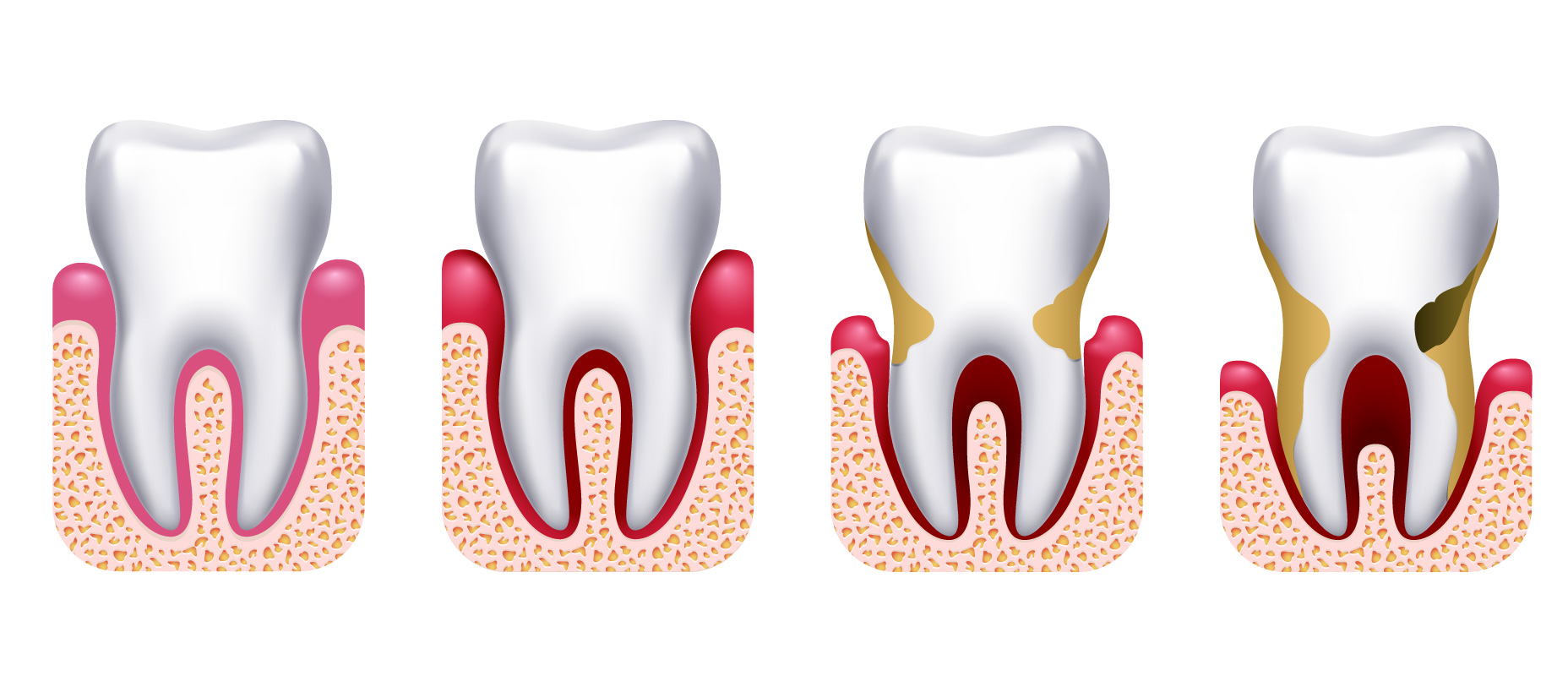Periodontal Diseases
Periodontal disease is a very common complaint today, and is expressed in the supporting tissues of the teeth whose function is to "hold" teeth in the jaw (periodontium).
Periodontal disease is a very common complaint today, and is expressed in the supporting tissues of the teeth whose function is to "hold" teeth in the jaw (periodontium).
The first symptoms which can make you suspect that something is wrong with your gums include redness, bleeding when brushing your teeth, bad breath, and so on. These can indicate the intial stages of parodontopathy, but also the right moment to consult with your dentist about adequate therapy. Otherwise, the destructive processes of periodontium move forward, leading later to a loosening of the teeth, and finally to their complete loss.

After a thorough clinical and radiographic check-up, our team will propose appropriate therapy, which will provide the desired result. It is necessary to follow instructions strictly and adhere to oral hygiene measures in the way you’ve been instructed at our centre. Treatment of periodontal disease, depending on its stage, can be conservative or surgical. It is important to emphasise that treatment with local anaesthesia is PAINLESS for both approaches.
- Conservative treatment includes regular cleaning of tartar and the removal of soft deposits from teeth (every 6 months), as well as curettage of periodontal pockets with special instruments, while eluting with appropriate medication
- Surgical treatment is administered when the disease is advanced and the conservative approach may not give the desired result. In this case, the periodontal pocket is approached surgically, whereby all pathological content is carefully removed. Further, in order to renew the tissue suitable regenerative materials are set into the defect, aimed at fostering the creation of new elements of tooth-supporting structures, which contributes to strength and to longer survival in the jaw
In order to stabilise the results, it is often necessary to splint the treated teeth, as that prevents further mobility in the function of chewing.
Want to ask a question or schedule an appointment?
Send us a message via contact form by clicking the button on the right or call us: +381 11 3553 088 or +381 65 3553 088